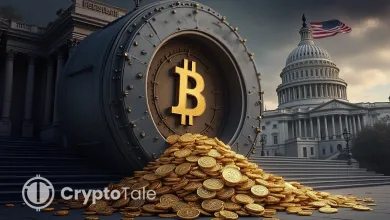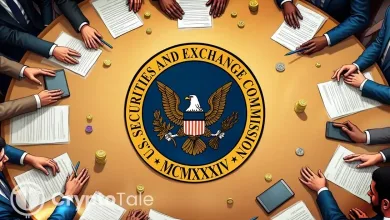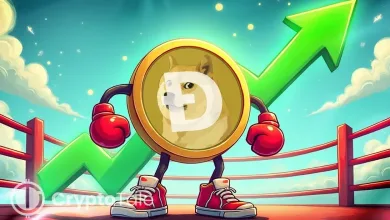Japan’s SBI Group Joins Chainlink to Build Crypto Tools for Banks

- SBI and Chainlink will create cross-chain tools for tokenized assets and stablecoins.
- Japan’s financial market offers strong conditions for tokenized finance infrastructure.
- Survey shows 76 percent of institutions plan to invest in tokenized securities.
Japanese finance conglomerate SBI Group has entered into a partnership with blockchain oracle provider Chainlink to create new crypto tools for Asia’s financial institutions. The collaboration will initially focus on Japan’s financial market, with broader applications expected across the Asia-Pacific region.
SBI confirmed that the initiative will develop tools allowing cross-blockchain tokenized real-world assets, such as on-chain bonds, while also enabling verification for stablecoin reserves. Chainlink’s technology will provide the infrastructure required to make such tools reliable and compliant for institutions.
The partnership marks SBI’s fourth major crypto-related deal in recent days. The group recently announced tie-ups with stablecoin issuer Circle Internet Group, crypto firm Ripple Labs, and Web3 infrastructure company Startale.
The excellence of Japan’s financial market, combined with the ever-expanding digital asset ecosystem, brings about conditions for the large-scale application of tokenized finance solutions. Hence, this permits a partnership such as an SBI-Chainlink to graduate from pilot phases to production-level systems.
Building Tokenized Finance Infrastructure
This Agreement is set to use Chainlink’s Cross-Chain Interoperability Protocol (CCIP) for safe multi-blockchain transfers. This protocol, with its compliance and privacy features, would be most suited to institutional use.
Another central role would be played by Chainlink’s Proof of Reserve and SmartData. Furthermore, Proof of Reserve will attest to on-chain reserves for stablecoins, ensuring transparency in this aspect, while SmartData will facilitate bringing net asset value data on-chain for tokenized funds. These innovations will improve efficiency and will unleash new liquidity for finance products.
The partnership will further explore payment versus payment settlement for foreign exchange and cross-border transactions. This could enable faster, cheaper, and more transparent transfers between institutions in different jurisdictions.
Chainlink co-founder Sergey Nazarov stated that his firm has been working with SBI for years, helping to develop stablecoin settlement tools and advanced fund tokenization projects. He said the collaboration is now moving toward large-scale production use.
Institutional Interest and Market Potential
A survey conducted by SBI Digital Asset Holdings with more than 50 financial institutions showed rising interest in tokenized assets. The study found that 76% of respondents plan to invest in tokenized securities, citing lower costs and faster settlement times.
Yet the same survey revealed that the absence of institutional-grade market infrastructure remains the biggest obstacle. Without reliable cross-chain solutions and verifiable data feeds, institutions have been reluctant to expand into tokenized finance. The SBI–Chainlink collaboration seeks to address this gap.
Related: Ripple, SBI to Launch RLUSD Stablecoin in Japan by 2026
The question now arises: could Japan, and Asia more broadly, emerge as the new center of compliant crypto finance while the U.S. and Europe remain stalled in regulatory uncertainty?
SBI recently linked to Circle and Ripple, and it also has links with Startale; now it has one with Chainlink. This is indicative of an arrangement to produce institutional-grade ecosystems. Japanese regulators have already proved flexible in developing policies that allow innovation and compliance, which further strengthens the institutional confidence.
Asian financial institutions begin foraying into scalable, secure, and compliant tokenized-finance systems, driven by flexible regulators and leading technology giants. This promises to position Asia to perhaps dare to surpass the West in crafting the cross-border finance infrastructure for the digital asset era.




